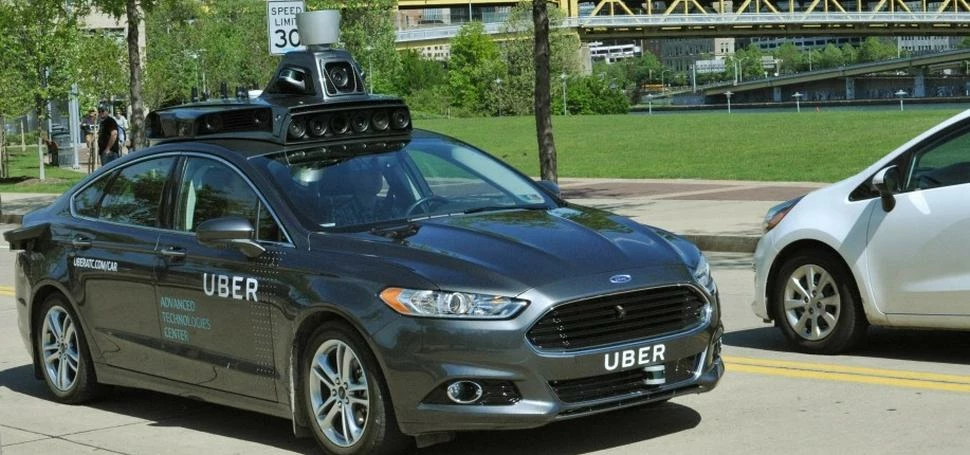
Partner Article
Uber tests first driverless car as it goes toe-to-toe with Google and Tesla
Global taxi firm Uber has signalled its entrance into the hotly contested driverless car space, with confirmation that it is testing its first autonomous vehicle.
In a statement, the US technology company announced that it is currently testing its first prototype on the streets of Pittsburgh.
The car, a hybrid Ford Fusion fitted with radars, laser scanners and high resolution cameras, has been developed at Uber’s Advanced Technology Center (ATC), and is daubed in the firm’s now ubiquitous logo.
In the statement, Uber explained that they are ‘still in the early days’ of their self-driving efforts and that their focus is on ensuring the technology is ‘safe for everyone on the road’ including drivers, cyclists and pedestrians.
The project is being carried out in conjunction with Pittsburgh’s Carnegie Mellon University, and the car-hailing firm also hailed the support it has received from political and regional leaders - presumably attracted by the publicity that the high-profile project would bring to the city.
Commenting on Uber’s trials, William Peduto, Mayor of Pittsburgh, said: “From the first steel mills to the laboratories at Pitt and Carnegie Mellon, Pittsburgh has a long history of innovation.
“Now we’re taking another step forward, this time as home to Uber’s Advanced Technologies Center, where some of the world’s leading innovators are helping to shape the future of transportation.
“We’re excited that Uber has chosen the Steel City as they explore new technologies that can improve people’s lives — through increased road safety, less congestion, and more efficient and smarter cities.”
Autonomous vehicles in the UK
While we are still a long way from hailing a driverless Uber taxi from our smartphones, a whole raft of global companies, including Google and Tesla, are currently ploughing untold millions into making the tech viable for our streets.
Meanwhile, in an effort to position the UK at the forefront of the autonomous vehicle revolution, the government has already begun to make legislative moves to pave the way for truly driverless cars on our country’s roads.
Wednesday’s Queen’s Speech saw the introduction of new legislation, due to come into force in 2020, which will make it easy to insure driverless vehicles, opening up all of Britain’s road network to the technology.
While testing is already planned for 2017 to trial how the vehicles might work on our roads, particularly how to manage the challenge of a transport mix that includes both traditional, human-controlled cars and their autonomous cousins.
Following the announcement of the new legislation, Chancellor George Osborne commented that the new tech could represent ‘the most fundamental change to transport since the invention of the internal combustion engine’.
He added: “Naturally we need to ensure safety, and that’s what the trials we are introducing will test. If successful, we could see driverless cars available for sale and on Britain’s roads, boosting UK jobs and productivity.”
Looking to promote your product/service to SME businesses in your region? Find out how Bdaily can help →








 Raising the bar to boost North East growth
Raising the bar to boost North East growth
 Navigating the messy middle of business growth
Navigating the messy middle of business growth
 We must make it easier to hire young people
We must make it easier to hire young people
 Why community-based care is key to NHS' future
Why community-based care is key to NHS' future
 Culture, confidence and creativity in the North East
Culture, confidence and creativity in the North East
 Putting in the groundwork to boost skills
Putting in the groundwork to boost skills
 £100,000 milestone drives forward STEM work
£100,000 milestone drives forward STEM work
 Restoring confidence for the economic road ahead
Restoring confidence for the economic road ahead
 Ready to scale? Buy-and-build offers opportunity
Ready to scale? Buy-and-build offers opportunity
 When will our regional economy grow?
When will our regional economy grow?
 Creating a thriving North East construction sector
Creating a thriving North East construction sector
 Why investors are still backing the North East
Why investors are still backing the North East